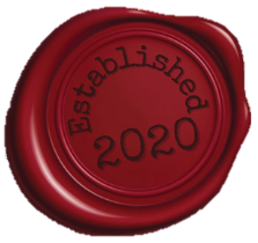
More Is Less, Less Is More
If you have kids, you can probably relate to the concept of too many toys and not enough toy boxes. Our family just adores our girls, Ember and Karissa, and we truly are grateful for that. But it also means they get showered with gifts to the point that they don’t even remember what they have. As further evidence, our girls currently share a bedroom, with our third bedroom doubling as a play room/guest room. At one time, it became so cluttered with toys that they actually stopped playing in there.
Yep, you read that right. Too many toys really can overwhelm a child. They forget what they have and feel less grateful for it all. Kids with too much will typically ask for every new toy they see in a magazine or on the TV. They will crave more and more and more, chasing that temporary high of getting something new. Unfortunately, each time they do get a new toy, their joy for it will only last a few minutes or up to a few days at most.
I’m not suggesting you only let your child have one or two toys at a time, but do they really need ten baby dolls and twenty stuffed dogs? With less toys, they will know what they have, where it is, and enjoy each toy so much more. The saying really is true: less is more. On top of the greater value that each toy will have, you will be setting your kids up for success. Think about it, how many of us get to buy whatever we want right when we want it? When we give our kids everything they ask for, they are gaining an unrealistic view of the way the world works. On the other hand, when time and effort are involved in obtaining something new, there is a greater sense of gratitude, pride, and enjoyment.
Using Minimalism to Maximize Your Joy
This concept of finding joy by minimizing applies to adults just as much as to kids. When you have too much, you will be incapable of enjoying or appreciating your belongings as much. You likely won’t have as much pride or care for each item. And if you’re anything like me, you may find it difficult to relax in a chaotic room full of clutter, and instead feel overwhelmed by it all. Your stuff will eventually get shoved into a box or a bag, placed in the garage or a closet, and quickly forgotten—except for when you trip over it or can’t find something.
When you minimize, each item holds far more value. You will thrive in a more enjoyable environment that enhances your ability to find relaxation. You will know what you have and where to find it. Cleaning will require far less time because you will be able to remain organized. And best of all, you will be happier.
The Proof
It’s true! There is a plethora of research claiming that the less we own, the happier we are. Don’t believe me? Google “the benefits of minimalism” and read about the connection between owning less and your happiness. Here’s a great article to get you started: Less Stuff: 10 Reasons Why Owning Less Will Make You Happier.
Need even more convincing that this lifestyle will enhance your joy? Check out The Minimalists who have written several books and blog posts, and host a podcast on this very topic. This dynamic duo has grown in notoriety so much that they have even produced two documentaries, the latest of which is on Netflix (Less Is Now).
Joshua Fields Millburn and Ryan Nicodemus both grew up on tight budgets, which guided what they believed they wanted for their futures: a big corporate job so they could earn lots of money and buy lots of things. And Joshua and Ryan did find the success they aimed for—six-figure incomes, big houses, luxury cars, and tons of stuff. Yet, they discovered a lack of happiness in the process, and this led to their new definition of success, along with big lifestyle changes.
What Exactly Is Minimalism?
Minimalism doesn’t mean getting rid of everything you own. It doesn’t dictate that your walls, pantry, and closets have to be bare and empty. You don’t need to rotate between just two shirts or starve yourself. If that is what you envision, you are focusing on the wrong part of this lifestyle.
According to Joshua and Ryan, “Minimalists don’t focus on having less, less, less. We focus on making room for more: more time, more peace, more creativity, more experiences, more contribution, more contentment, more freedom.” Get it? Your focus should be on making the space to have more of the things that actually bring quality of life, the things you can’t hold in your hands. The Minimalists explain that “[m]inimalism is the thing that gets us past the things so we can make room for life’s important things—which aren’t things at all.” After all, you can’t take anything with you when you die, but you can leave behind a legacy of beautiful memories and experiences.
If the idea of living in a tiny home makes you feel cramped and claustrophobic, you can adapt the minimalist lifestyle to fit your own comfort level. I greatly admire those who can live a life of minimalism (one of my clients did this for about twenty years—check out Rolling Art by Dave “Letterfly” Knoderer, coming soon!). My husband and I have even talked about building a tiny home when we are older and the kids have moved out. But for now, I still enjoy a moderately sized home that allows us the space to coexist peacefully. Even if you aren’t ready for tiny home living, you can still appreciate the concept of minimalism and apply it to your current lifestyle.
To Be Continued…
Next time, I will reminisce on how my family came to discover the value of minimizing throughout several moves, including our biggest one yet looming just around the corner.


